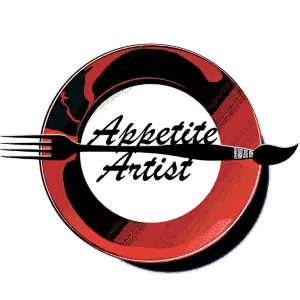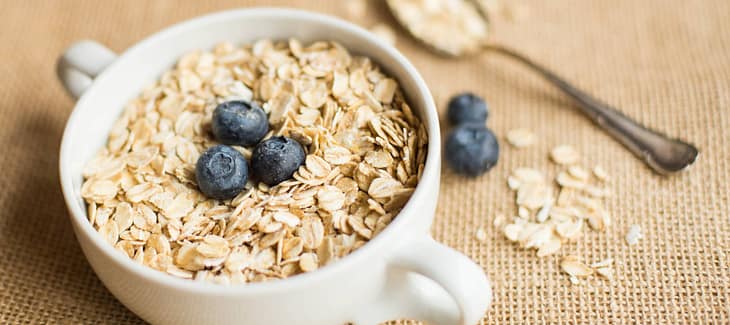Oatmeal is a common breakfast alternative to cereal and has become very popular over the years, thanks to its numerous health benefits. However, there are still those who are skeptical about eating anything oat-related, especially those who suffer from food allergies. These people often hold beliefs or theories about oats that are passed on to them from other people or sources. So, let’s talk about them and help dispel any false information pertaining to oats and their consumption.
Most people believe that oatmeal is a bland and flavorless brunch meal that contains too much unnecessary carbs. However, this belief couldn’t be further from the truth. In fact, oatmeal is one of the most creative, nutritious and versatile meals you can have. They can be eaten hot or cold and topped off or mixed with almost anything, and they contain lots of essential vitamins and minerals. You can eat them any time of the day too, although morning is typically the best time to eat it. Going further, oats can be grounded into milk or blended with baked foods such as cookies and brownies.
Oatmeal is a traditional, delicious, tried-and-true breakfast superfood that I foresee will only get more popular as the months go by. Simply by experimenting with oats and doing your own research, you will see just how many different recipes you can make with it.
Nevertheless, there are more specific misconceptions that seem to plague the minds of many. This article will address common myths that people have about oats and help find out what is true or not about them. This way, you can make your own decisions regarding your use of oats.
Here are six common thoughts or concerns people have about eating oats.
1) Oatmeal contains too many carbohydrates and can often cause bloating or constipation.
People who possess this belief have most likely bought oats in the past that weren’t from reputable sources. These people have most likely bought oats from brands or manufacturers who taint their oats with unnecessary additives. These may include much higher sugar to make the oats sweeter, or flavorings that can be upsetting to the stomach. Additionally, oats may become mixed with wheat accidentally in the manufacturing process, and this can contaminate the oats with gluten. This is bad because oats are naturally gluten-free, and gluten contamination can cause those with gluten allergies to become sick. Trustworthy oat brands from grocery stores will always notify you of any gluten concerns in the ingredients section.
In this sense, this misconception is correct-any of the above conditions are able to cause bloating or constipation. However, oats do not normally cause any health concerns whatsoever. They are a great breakfast food, filled with healthy fibers, proteins, vitamins and minerals. Oatmeal is one of the best foods to maintain optimal heart health and pairs extremely well with eggs to give you a sustainable dose of energy, so you can tackle your day with confidence. In summary, make sure you buy oats from reputable brands or manufacturers, and buy unflavored oats if you want to be on the safe side. Eat oats in moderation if you have personal problems with bloating or gut health in general.
2) Oatmeal is very sugary and can spike up your blood glucose levels, leading to weight gain.
Similar to the last misconception, certain suppliers of oats may add an unnecessarily high amount of sugar in their oats. Whether it’s oatmeal, cereal, or cookies, a high dosage of sugar is never a good thing. Added sugars like corn syrup and sweeteners have been linked to obesity, diabetes, and heart disease in individuals who consume them on a daily basis. Buy oats from reputable brands or manufacturers, or simply make them at home.
While I do believe you shouldn’t eat too many oats in one sitting, oatmeal most certainly will not spike your blood glucose levels, even in high amounts. It contains many carbohydrates, but those carbs are in the form of dietary fiber and thus is much better for your body than simple sugars. These fibers may also help with weight loss because it will satisfy you for much longer than commercial, sugary breakfast foods. Oats also contain beta-glucans, which help support the feeling of fullness and fight cravings.
Additionally, oats contain plenty of vitamin E, iron, and magnesium. These vitamins and minerals help keep your heart and bones healthy and strong, which in turn makes your blood glucose levels more stable.
3) It’s ok to eat as much oats as you want.
This is a dangerous belief-oats are not for binging. In general, one or two bowls of oatmeal most days is good enough for most people. This way, you can get all the health benefits of oats without going overboard.
Many studies have been done on the negative effects of oat overconsumption. Oats are by definition a whole grain, which means it contains lots of fiber, starch and glucose. Eating too much oats, or any grain food, can cause bloating, stomach pains, weight gain, malnutrition, and constipation. Do not consume too many oats in one sitting! It’s important to portion your oat intake based on what your body can handle. You can also have Greek yogurt or eggs on the side to help you receive your nutritional needs for the day.
4) Oatmeal is one of the most boring meals you can eat.
If you have a creative mind, the sky is the limit when it comes to eating oats! People who claim oats are boring are simply too lazy to spice things up. Oats can be mixed with other foods and recipes, drunken as milk, and even baked or roasted.
A typical oatmeal breakfast is mixable with water, milk, or yogurt to make it more chewy and creamy.
You can also mix it with any small-sized food you can imagine. Foods like nuts, seeds, fruits, peanut butter, whey protein, and chocolate all work fantastic with oats. Spices, herbs and mixes can go with oatmeal as well.
You can throw oats, fruits, and water in a blender to create a thick, fibrous shake known as an oatmeal smoothie. Anything that goes great in a regular smoothie is amplified by using oats in them as well.
Serve oats warm as porridge by using a stove on low heat or a microwave. Conversely, you can store oats in a fridge overnight and serve it thick and creamy in the morning; we call these “overnight oats”.
Oats are great mix-ins in traditional baking recipes such as pancakes, muffins, and cookies. The oats give these baked goods a protein and fiber boost while also giving them a satisfying crunchy flavor.
As you can see, there are many ways to make eating oats fun and creative. Experiment and see what kinds of new foods you can make with oats!
5) Steel-cut oats and whole grain oats are the most nutritious oat types out there.
This is simply not true because the different kinds of oats vary only in how they are cut and processed. In reality, all oat variants start from the same beginning.
The first step of making oats is to harvest a cereal grain plant known as Avena sativa. They are either saved as livestock feed or further processed for human consumption. The oat husks are gathered and then separated into groups. Depending on what form the oats will take, they are either steamed, rolled, cut, milled, flaked, or cooked and cooled in a kiln. Then, they are labeled and distributed outward.
Whole oat groats are the base form of the oat grain and take the longest to cook. They retain every part of the grain, with the exception of the husk, which is removed since it hinders digestion of the oats.
Rolled oats are the most common oat type and the ones you want to use in baking recipes. They are made by steaming the whole oats, then rolling it flat and thin after.
Steel-cut oats are produced by chopping the oat groats into smaller pieces. This makes it taste and feel more like a tiny seed.
Instant oats, the kind we use in oatmeal, are made by precooking, drying, and flaking rolled oats. They are the softest and chewiest oat type.
Oats are also good for grounding into flour or extracting milk from them, which are two very important uses for the grain.
However, as stated before, all of these oat variants have extremely similar nutrition. They are simply different oats that come from the same whole oat groat initially harvested from the plant. Depending on how you plan on using oats, I recommend buying the right type for your recipe (rolled oats for baking, instant oats for oatmeal, etc).
6) Oats are too expensive and hard to find.
There are many workarounds for this misconception. To start, it is a fact that the price of oats is mostly based on the price of other grains such as wheat, corn, and barley. Generally, as one of these wheats jump up in value, the others tend to follow. As of the time of this article being published, oats are above-average in price. Considering the current value of other grains, I suspect they may cost even more in the future.
Oats are generally most expensive when served in large canisters-which you will need if a recipe calls for a certain amount of oats. Rolled oats and steel-cut oats can be quite on the expensive side, depending on what brand you buy. If you have to use oats in large quantities, buy the biggest canisters as they will provide you the most value.
Seeing as how oats provide sizeable health benefits, they are well worth their cost. Oats for individual use are also not very expensive when you consider that they are best to eat in moderation. One or two bowls in the morning is more than good enough to retain the many vitamins, minerals, and fibers present in them.
Buying boxes that contain multiple instant oat packets can be a great way to go budget shopping for oats. Most six packet boxes of instant oats cost around $5, which translates to only spending 83 cents per day. That’s not bad for a grain that supplies enormous fiber, tons of vitamins and minerals, and proves to be one of the best meal options for people with high gluten sensitivity.
Try to avoid oat brands that do not serve you or add too many additional ingredients like proteins and sugars. This is because they tend to cost more than normal oats. Buying oats in bulk is the best way to get the most value for your oats while staying on a budget.
Conclusion
Oats are an incredibly nutritious grain food that can serve you a wide variety of uses. They are a breakfast and lunch superfood that is very much worth having, especially if you are health-conscious or suffering from gluten allergies or diabetes. By clearing these misconceptions, you should hopefully be more informed on how you should handle and eat oats.






